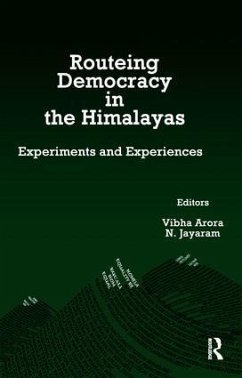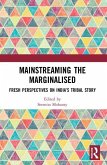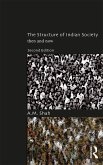Historically treated as an amorphous borderland and marginal to the understanding of democratic politics and governance in South Asia, Southeast Asia and northern Asia, the Himalayan region, in the last 50 years, has become an 'active political laboratory' for experiments in democratic structures and institutions. In turn, it has witnessed the evolution of myriad political ideologies, movements and administrative strategies to accommodate and pacify heterogeneous ethnic-national identities. Routeing Democracy in the Himalayas highlights how, through an ongoing process of democratisation, the Western liberal ideologies of democracy and decentralisation have interacted with varied indigenous politico-cultural ideas and institutions of an ethnic-nationally diverse population. It also reviews how formal democracy, regular elections, local self-governing structures, protection of the rights of minorities and indigenes, freedom of expression, development of mass media and formation of ethnic homelands - all have furthered participatory democracy, empowered the traditionally marginalised groups and ensured sustainable development to varying degrees. The book provides ethnographic and historical vistas of democracy under formation, at work, being contested and even being undermined, showing how democratisation thematically stitches the independent Himalayan nations and the Indian Himalayan states into a distinctive regional political mosaic. Combining new perspectives from comparative sociology, political anthropology and development studies, the volume will be useful for policy makers, as well as specialists, researchers and students in sociology, anthropology, area studies, development studies, and Tibet and Himalayan studies.
Hinweis: Dieser Artikel kann nur an eine deutsche Lieferadresse ausgeliefert werden.
Hinweis: Dieser Artikel kann nur an eine deutsche Lieferadresse ausgeliefert werden.








